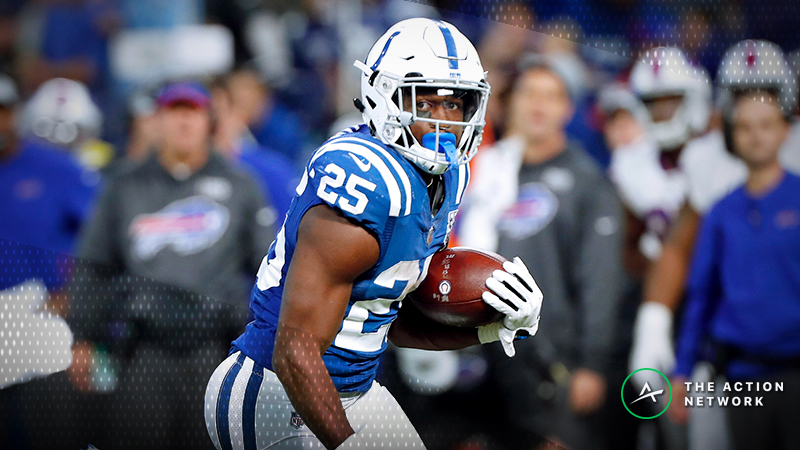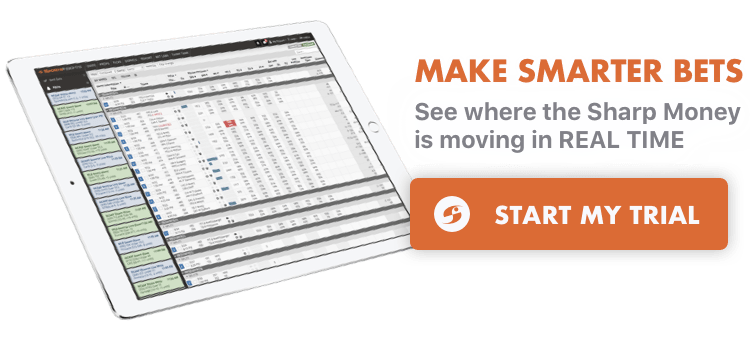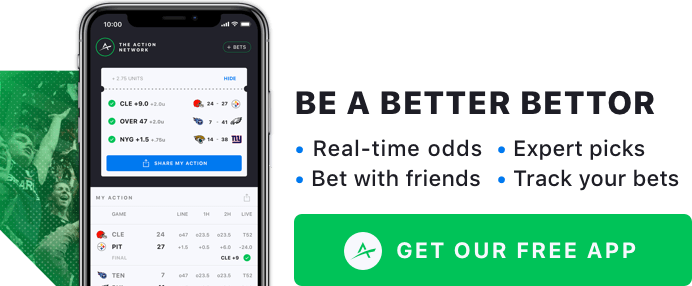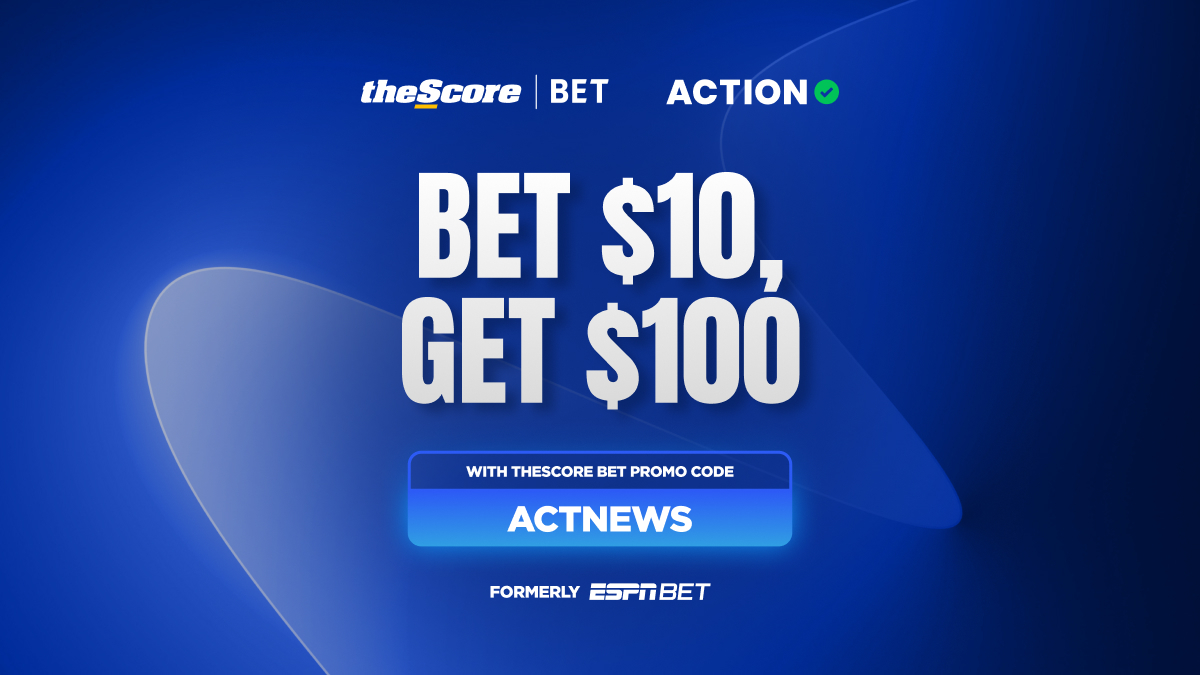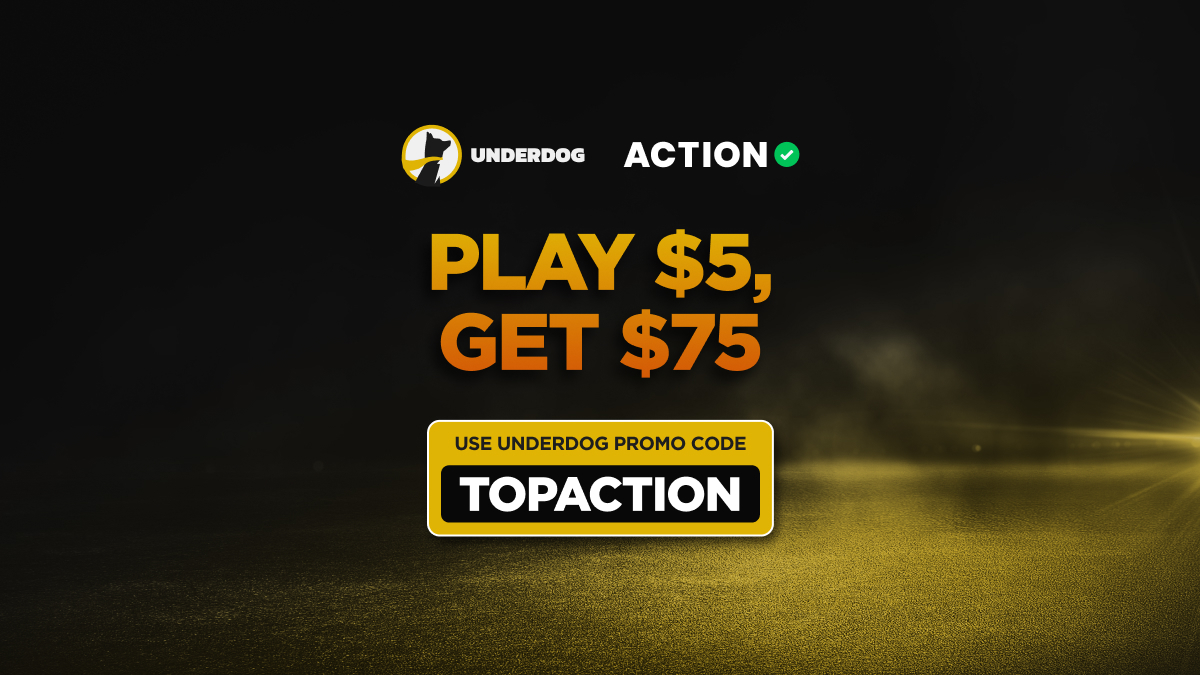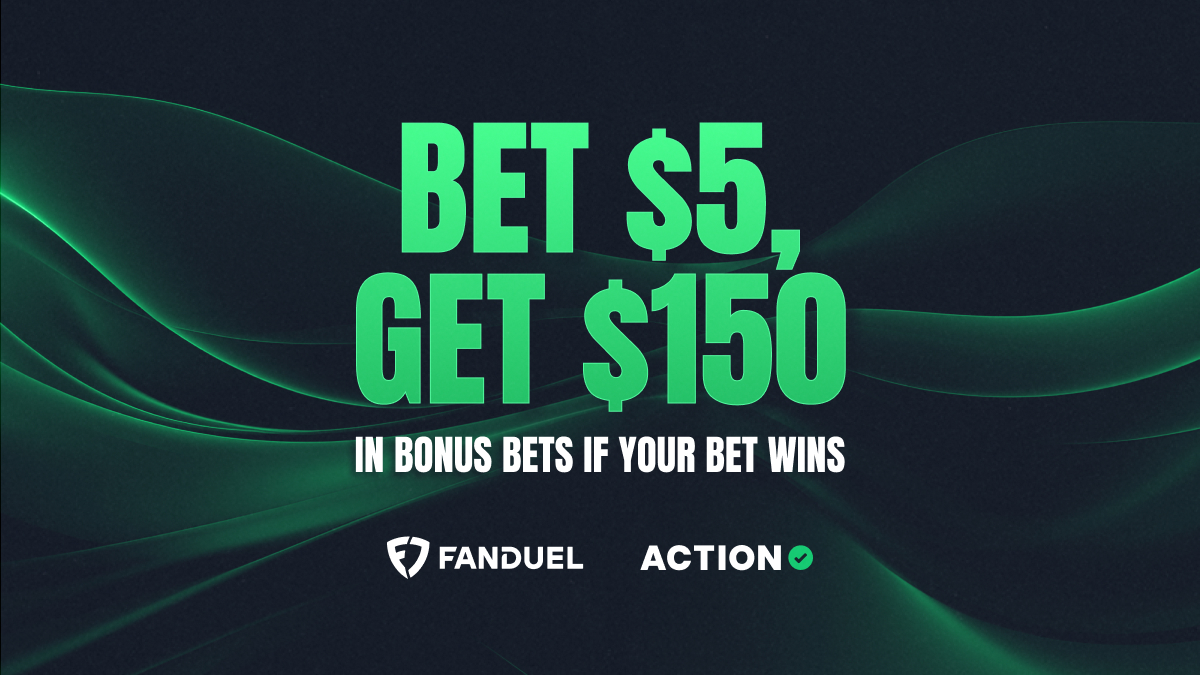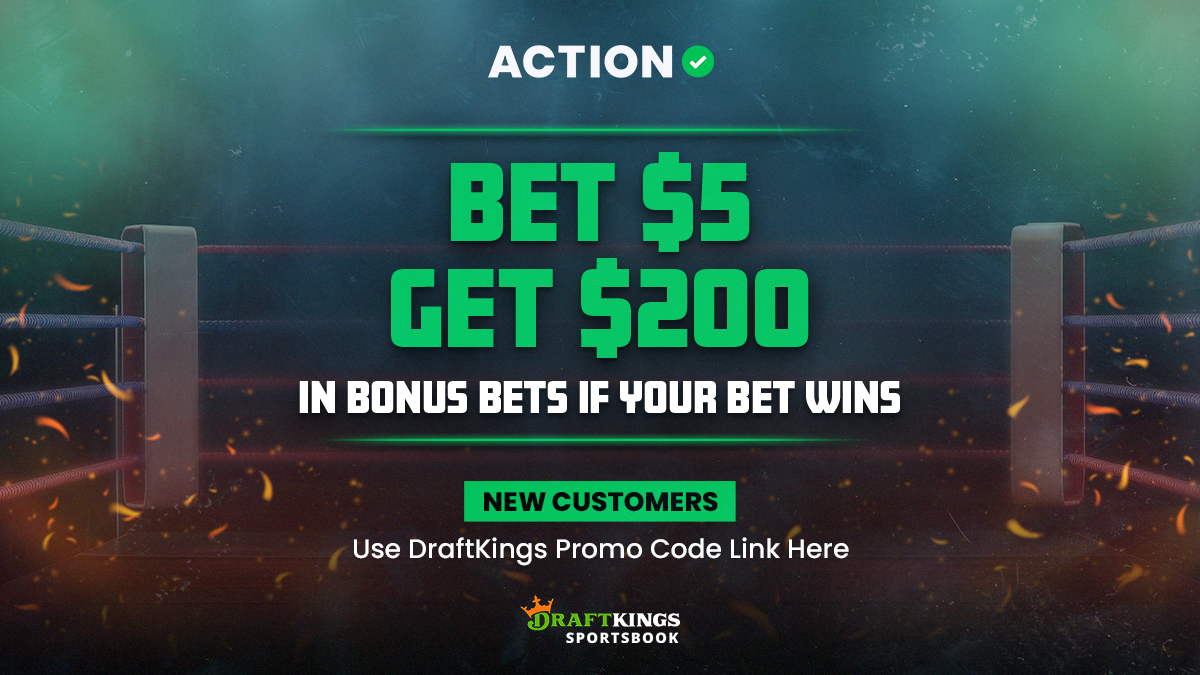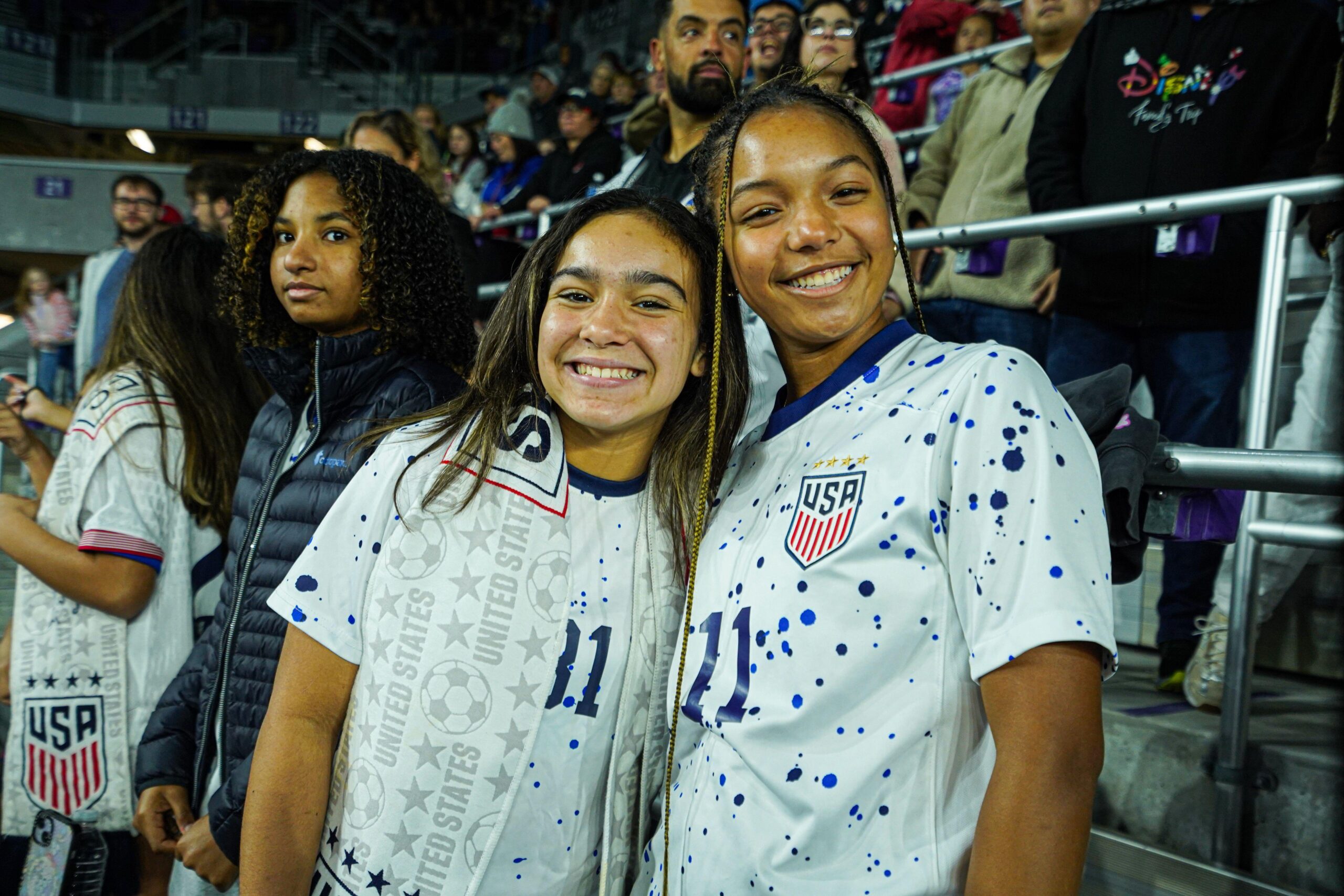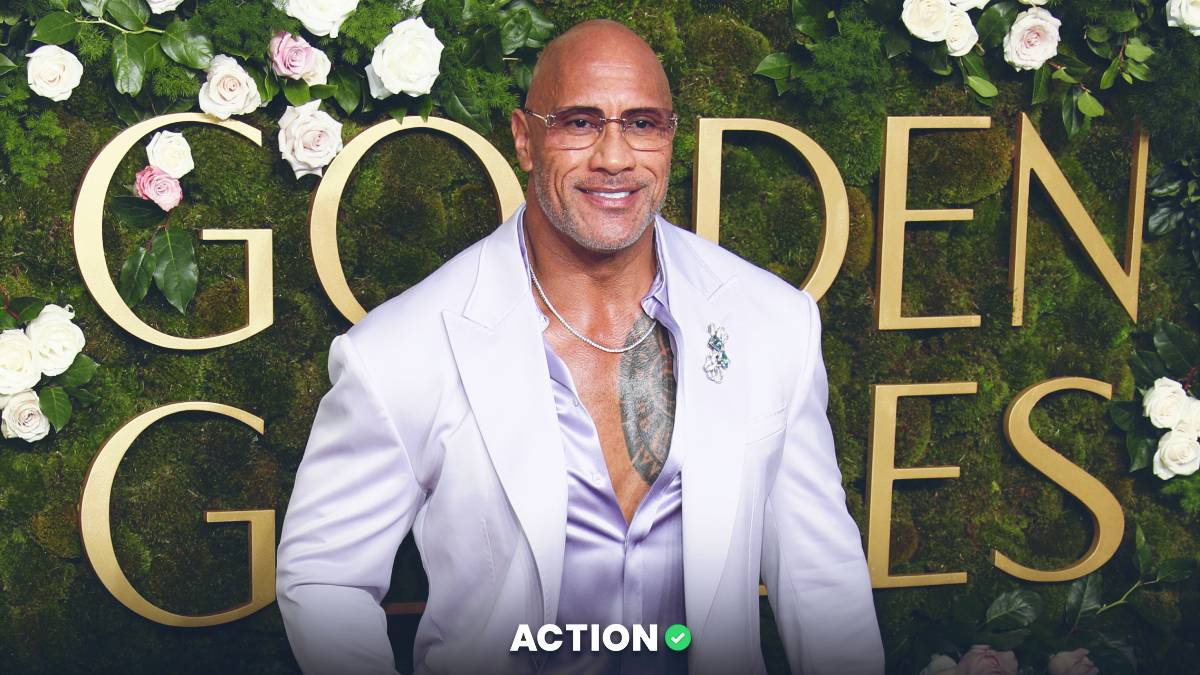- On January 11-13, DraftKings held the first-ever Sports Betting National Championship in Jersey City, New Jersey.
- FantasyLabs co-founder Jonathan Bales breaks down the strategy he used and bets he made in the event.
When DraftKings announced its Sports Betting National Championship (SBNC) with a $1 million top prize, held this past weekend in Jersey, I knew pretty much right away I’d be signing up. That’s because this particular contest, in my opinion, is about 1% sports-betting skill and 99% game theory and problem solving.
I thought it set up pretty well for me as a daily fantasy player specializing in guaranteed prize pools. I would have been a dog if it were straight sports-betting acumen.
DraftKings Sports Betting National Championship Rules
Before I get into my strategy, here were the rules:
- It was a $10,000 buy-in: $5,000 went to the actual bankroll to bet, $5,000 to the prize pool.
- Betting began at noon ET on Friday and finished at kickoff of the Saints-Eagles game.
- All typical bet types were allowed. Limits were higher on Sunday, but you had to be on NFL that day.
- The winner was the person who built the largest bankroll over the weekend.
- You kept whatever was left of your $5,000 bankroll at the conclusion of the event.
- There were around 260 entries into the event: The top 25 won cash prizes from $15,000 to $1,000,000.
- And the only other rule … was there were no more rules! That’s untrue; there were more rules. You can look them up if you want.
Bales' Strategies & Hypothesis for the DraftKings SBNC
What interested me about this contest — and this is true of basically all games — is that it's new. It’s a totally unique format, meaning no one really knew what others would do or how that might play into the “correct” strategy. I talked to a bunch of guys on Friday, and the approaches were all so different.
With any game, it’s imperative to learn all the rules intricately and find the biggest opportunities to exploit those rules. Because this was a peer-to-peer contest, strategy can and should change based on what others do and how they perform. Theoretically, the right approach for next year’s contest could be drastically different from this year.
For the most part, I treated the championship as though it were a DFS tournament. One thing I do in DFS is create hypotheses and then figure out the best ways to benefit if I’m right (or, more accurately, if I get lucky and those things happen). Those beliefs could be micro-level about specific players or games (“the Saints will be underowned,” for example) or macro-level about overall strategy (“people are overconfident in projections,” for instance).
Anyway, here were some of my hypotheses heading into the championship.
1. The Winning Score Would Be $100,000+
I thought it was important to make a prediction about the winning total and constantly refine that prediction based on the standings to reverse-engineer the proper strategy. “The winner needs to get to $100,000, so what do I have to do right now to maximize the probability of hitting that amount?” The winning total ended up being $101,474.02, although that could have been drastically different had the Eagles beaten the Saints.
It also could have been higher if Rufus Peabody and other participants had been able to use their winnings from the Patriots-Chargers game to bet on Saints-Eagles, but their accounts weren't credited in time.
I thought the winner would hit the six-figure mark because I did a simple thought experiment in which a user goes all-in on a standard -110 bet five times (once Friday night and four times throughout the rest of the contest). Theoretically, even if those bets are a flip, you’d have 1 in 32 entries (the odds of winning five flips) with roughly $127,000 bankroll (what you’d run it up to if you won all five going all-in at -110).
I figured this first contest would be pretty mismanaged, and it was. I include myself in that assessment with the benefit of hindsight. But I do think that thought experiment was a generally decent way of estimating the final roll, at least for a semi-efficient group.
2. Almost All the Equity Was in Going for the Win
Yes, the $5,000 was real money, but at any given point, the expected value (EV) of each bet in terms of what I’ll call pure "dollar EV" is pretty inconsequential compared to its win probability EV. That fact holds true even as bet sizes increase, because those betting huge sums on Sunday, which we saw with many all-in attempts with tens of thousands of dollars, have such high EV in the contest; even a 10% chance of winning is worth $100,000.
I think a good analogy here is the relationship between point maximization and win probability in the NFL. Passing the ball on first down leads to more points than running, but that doesn’t mean it’s always the right decision; no one would suggest passing on first-and-10 with a lead and less than a minute to play, for example. That decision would maximize points but not win probability. Similarly, there were many decisions in the SBNC that might maximize return on investment or dollar EV but were wrong in terms of winning the tournament.
Anyway, I didn’t think there was too much equity in trying to grind up a bankroll slowly with the sharpest possible bets. Obviously you want to get it in good at all times, but as was evidenced by all the parlays and longshot bets we saw all weekend from people who’d otherwise never make those bets, the value was really in finding a way to spin up your roll quickly.
3. It Was Important to Be Near the Top of the Leaderboard by Saturday Night
The leader after Saturday night got a $50,000 bonus, but on top of that I figured it would be difficult to win the contest without a substantial amount of money heading into Sunday.
That’s because you could bet on only the two NFL games, and while there were a lot of bets on the board, there really weren’t a ton of “outs” available for someone trying to come from behind. You couldn’t parlay within the same game, so the parlay upside we saw in the first two days was limited, which meant that money was tied up for all of Sunday. Because bets were public, others would be able to see how much money you could win on a parlay and potentially block it as well. Plus, winning any bet on Sunday with just two games was correlated with others winning as well.
I just thought it was highly likely the winner would be someone who was near the top of the leaderboard on Sunday morning and who could make a pretty normal bet, which is what we saw with the winner going all-in on Eagles +8 for his final bet.
4. There Would be Value in Getting Information About Your Status as Many Times as Possible
If the goal was to reverse-engineer how to get to the bankroll necessary to win, it’d be important to keep refining that prediction based on 1) how others perform and 2) your bankroll.
It’s similar to the much-discussed two-point decision in the NFL, specifically when teams down 14 points score a touchdown. The math is so in favor of going for two points, not because of the expected points, but because of the information. The knowledge of being down either six or eight is useful in guiding your next decision. If you make the conversion, you can kick the extra point for the lead after your next touchdown, but if you miss, you still have the opportunity to go for two again for the tie.
I didn’t make any bets on Friday night, for three reasons: 1) I don’t have confidence in NBA, 2) I treated Friday/Saturday as one long period and thought it was more important to acquire information regarding the aggressiveness and performance of others and 3) I messed up and probably would change it if I could go back.
Nonetheless, I came out firing early on Saturday.
Bales' Bets in the DraftKings SBNC
Here were my bets:
Three-team Parlay +1250
- Miami (OH) +16
- Louisiana-Monroe +6.5
- Pittsburgh +270
Wager: $1,000 to win $12,500
Marlon Mack Scores Last Touchdown +800
Wager: $1,445.22 to win $11,561.76
Marlon Mack Scores & Colts win +350
Wager: $660.67 to win $2,312.35
Eric Ebron Scores Last Touchdown +1000
Wager: $1,156.18 to win $11,561.80
Eric Ebron Scores & Colts Win +425
Wager: $544.08 to win $2,312.34
Mo Alie-Cox to Score First Touchdown +4500
Wager: $193.85 to win $8,723.25
Bales' Results in the DraftKings SBNC
If you’re keeping score at home, that’s $5,000 wagered and a -100% ROI. Along with about half the field, I finished tied for dead last in 132nd place. Please continue to read my strategy guide on how to navigate the SBNC properly. As you can see, I am qualified.
But really my goal on Saturday was either to go busto or run it up as much as I could before the late game. And I accomplished my goal!
Without being able to do in-game parlays, I chose correlated bets with Mack and Ebron scoring the last touchdown and also one of them scoring with the Colts also winning.
Again, I can’t emphasize enough how much I think this competition was about strategy and not about sports-betting chops. Every single one of those bets above is likely –EV by itself. I bet a three-team parlay and five ridiculous to-score props. But the goal was to just bink one of those to have some sort of a roll with which to work.
My plan from there would have been to go all-in on the night game, which would have put me around $30,000 heading into Sunday with a win on a standard bet.
So would I do it all again? Oh yeah. I really like the concept and will be firing again next year, albeit with a different approach.


